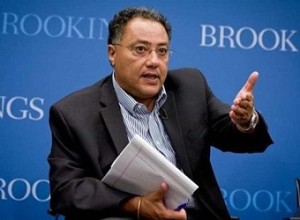Written by Amwal Al Ghad English
Triggered by some policy reforms and low oil prices, a third of the Middle East Countries are expected 4 percent growth in 2015, notably Egypt and Morocco, Hafez Ghanem – World Bank Regional Vice President for MENA – said on Thursday.
The latest World Bank Economic Monitor for the Middle East and North Africa (MENA) expects GDP regional growth to remain flat at 3.1 to 3.3 percent for the rest of 2015 and for 2016. Prolonged conflict and political instability in some countries, low oil prices that are dragging down growth of oil exporters, and the slow pace of reforms are all contributing to low investment, high unemployment and—for the first time in four years—a fiscal deficit for the region as a whole.
The average growth rate hides variation in different countries’ economic prospects. “A third of MENA countries—oil importers—will grow at about 4 percent in 2015, buoyed by some policy reforms, notably in Egypt low oil prices,” and Morocco, as well as low oil prices,” said Hafez Ghanem.
Economic growth in oil exporters, however, is plummeting. Those mired in conflict, such as Iraq and Libya, are likely to see economic contraction this year. The Gulf Cooperation Council (GCC) countries are expected to lose about US$215 billion, or 14 percent of their combined GDP, from lower oil prices this year.
The region’s lackluster economic performance over the past four years has highlighted the fact that long-standing problems, including high unemployment, especially among youth and women, and the poor quality of basic services such as education and health, remain unsolved.
The report suggests that the old development model—or social contract—where the state provided free health and education, subsidized food and fuel, and jobs in the public sector, has reached its limits. “While it delivered high enrolment rates and basic health, not to mention civil-service jobs, the old social contract was unable to provide quality education and health, or jobs in the private sector,” said Shanta Devarajan, World Bank Chief Economist for the MENA Region. Quality health and education requires that the doctor or teacher be accountable to the patient or student—something that a centrally financed and provided system does not achieve. And creating jobs in the private sector requires markets that are open to domestic and foreign competition and not captured by a few politically connected firms.
To generate private-sector jobs and quality public services, the report calls for a new social contract, one where the state facilitates competition in domestic markets, and organizes service delivery so that citizens can hold providers accountable. “Given that MENA countries achieved so much with the old social contract, I am confident that they can achieve even more with the new one,” said Devarajan.








